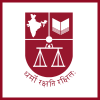Telecommunications
Telecommunications
The TRAI, which was founded on February 20, 1997, oversees the telecom sector. It was created to keep India’s tariff rates consistent. The Telecom Regulations Authority of India Act, 1997, is the law that governs this industry. In order to protect consumers from fraud, the TRAI has implemented a number of measures. Mycall, Myspeed, and do not disturb (DND 2.0) were developed to encourage transparency and give consumers access to information about the real payments made by users to the operators. As of 2019, there are a total of 1183 million telephone connections in India. The sector is expected to grow further in future.
Grounds for Complaint
The Consumer Protection Act, 2019 provides remedies to consumers for deficiency of service. There can be various grounds for complaints for deficiency of services in the telecom sector, but the most common ones include:
- Poor connection services such as slow internet, patchy network coverage, and defective connection.
- Poor redressal services such as substandard customer service.
- Poor billing services such as excessive or incorrect billing.
Complaint Redressal Mechanism
The consumer can register his complaint through various available mechanisms. These are provided below in a step-by-step manner (Department of Telecommunications- Public Grievances)
1. Reaching out to the service provider:
The main responsibility to address the concern of consumers relating to poor connection, redressal, and connection services rests with the service providers based on the licensing terms and conditions.
The TRAI came up with a two-tier grievance redressal mechanism that shall be set up by all the Telecom Service Providers. This two-tier mechanism is constituted in the following manner-
a. A Complaint Centre with a toll-free “Consumer Care Number” which will be responsible to address all the complaints received by them. The procedure for dealing with these complaints is that a unique docket number is given to every complaint, which is stored for a period of three years. This docket number, alongside the date and time of registration, and the time limit for resolution of complaints shall be communicated to the consumer through SMS. The time limit for resolving service disruption difficulties is within a period of 3 days, and all other queries within a maximum of 7 days.
In case the consumer is not satisfied with the complaint redressal at the Call Centre level, they can reach out to the Nodal Officer of the Service Provider. The problems relating to disruption of service shall be redressed within 3 days, and all other cases shall be dealt with within 10 days.
b. An Appellate Authority constituted of one or more persons to deal with grievances, that could be reached if a consumer is not satisfied with the redressal of his complaint, or his complaint remains unaddressed or no intimation of redressal of the complaint is received within the specified period. This body is called the Telecom Dispute Settlement and Appellate Authority (TDSAT). The time limit for filing an appeal in TDSAT is within three months from the disposal of complaints by the Nodal Officer. However, it remains at the discretion of the appellate authority to admit complaints beyond that period.
The tribunal also directs parties to go for mediation, which ensures cost and time saving for the parties involved. In any case, if the dispute is not resolved through mediation, the consumer can reapproach the tribunal through an advocate. The proceedings in the TDSAT are the same as in a court.
Moreover, the time limit for disposal of the appeal is within three months from the date of filing of the appeal.
Furthermore, the TRAI has also set provisions for rent rebates to consumers in cases of delay in the resolution of complaints. This is as follows-
a) For more than 3 days and up to 7 days- rent rebate for 7 days
b) For more than 7 days and up to 15 days- rent rebate for 15 days
c) For more than 15 days- rent rebate for one month
2. Approaching any other appropriate judicial or quasi-judicial body:
The complainant is free to take the service provider to a court or any other suitable venue (judicial or quasi-judicial). The proceedings in consumer commissions are not mired by the niceties of procedure, allowing the complainant to file a complaint for himself. As a consumer, the aggrieved party can take the service provider to the appropriate consumer commission, based on the pecuniary and territorial jurisdiction. The jurisdictions of the various consumer commissions are as follows-
a) District Commission
The aggrieved consumer can reach out to the District Commission under section 34 of the CPA, 2019, which provides that the district commission shall entertain matters where the value of the goods or services paid as consideration does not exceed more than one crore rupees.
b) State Commission
In cases where the value of the goods or services paid as consideration is more than one crore, but less than 10 crores, the consumer can approach the State Commission. Moreover, in cases of unfair contracts, the State Commission has original jurisdiction and the consumer can be directly approached. An appeal against the order of the District Commission can also be made under section 47 of the CPA, 2019.
c) National Commission
The National Commission can entertain matters where the value of goods or services paid as consideration exceeds 10 crores. Section 58 also provides that complaints against unfair contracts can be entertained by NCDRC when the amount of value paid exceeds 10 crores. The NCDRC also has appellate jurisdiction against the orders of any State Commission and Central Authority.
Moreover, it must also be kept in mind that section 100 of the CPA, 2019 provides that the remedy under CPA is in addition and not in derogation of other available remedies.
Another remedy available to consumers is mediation. Chapter 5 of the Consumer Protection Act provides for establishing mediation cells and resolving consumer complaints using mediation.The following link could be used to file complaints online:
3. Central Consumer Protection Authority
If the commission finds violations of rights of consumers or in notice of trade practices which is unfair it can inquire or cause an inquiry, either on receipt of complaint or suo moto or as directed by Central Government. If the commission finds, after preliminary inquiry, of an existence of a prima facie case of consumer rights violation or it is in notice of any unfair trade practice or any wrong or inaccurate advertisement which is prejudicial to public interest or to the interests of the consumers,it can order an investigation by the District Collector or by Director General.
The consumer can complain to the District Collector of the respective district for investigation and subsequent proceedings by the CCPA. He/she/they can also submit a complaint via email, at com-ccpa@nic.in.
When Complaints Would Not Be Accepted
There are various situations which might cause the complaint to be rejected. These include situations where the consumer is unable to file an appeal against an order within a period of three months, where the complaint is based on a frivolous cause of action, where the complaint falls outside the jurisdiction of the authority approached, and when the complaint has been filed under wrong sections of the act, and other such situations.
Regulatory Bodies
The Telecom Regulatory Authority of India Act, 1997 establishes the Telecom Regulatory Authority of India (“TRAI”), which is the regulatory body for the telecom sector in India. Apart from the regulatory functions, the TRAI is also authorized to adjudicate upon issues relating to matters between the consumers and the service providers.
An advisory team of the strength of two members shall be constituted in each of the service areas by the service provider. This will comprise one member from the consumer organization registered with TRAI and another member from the service provider.
The following link can be accessed to read more on the TRAI: Read More
Legislations
- The Telecom Regulatory Authority of India Act, 1997- Read More
- Telecom Consumers Complaint Redressal (Third Amendment) Regulations, 2014- Read More
- Telecom Consumers Complaint Redressal (Second Amendment) Regulations, 2013- Read More
- Telecom Consumers Complaint Redressal (Amendment) Regulations, 2012- Read More
- Telecom Consumers Complaint Redressal Regulations, 2012- Read More
Landmark Judgements
1. Vodafone Idea Cellular Ltd. v. Ajay Kumar Agarwal
It was held that the additional remedy under the CPA is not excluded by the telegraph contracts which mandatorily have arbitration clauses.
2. Idea Cellular Ltd. v. Angad Kumar
In this case, it was held that the negligence on part of the service provider resulting in deficiency of service makes it liable.
Sample of Complaint
Important Links And Resources
Please refer to the links below:
- Department of Telecommunications Public Grievance
- Telecom Regulatory Authority of India Complaint
- Telecom Consumer Complaints Monitoring System

